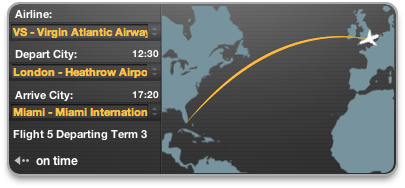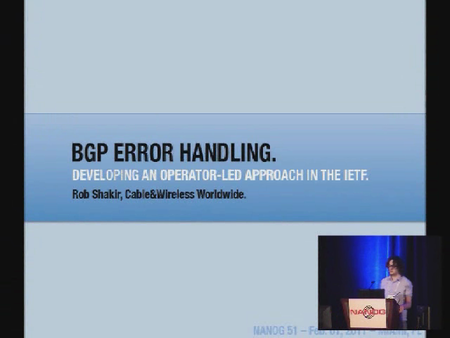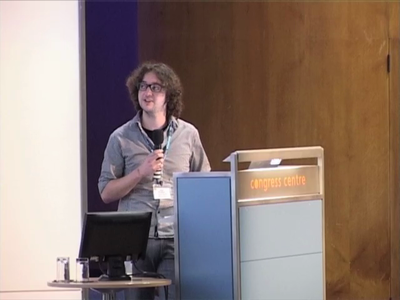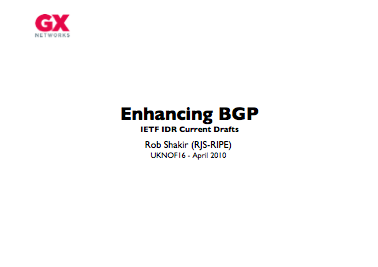Speed of Internet Innovation.
imported Blitherings · Tech · ThoughtsA question that came up at an event I was at yesterday: How will the time between the first (commercial) deployment of a telephony service, and a regulated universal service obligation for telephony compare to that of the time between the first (commercial) Internet services being deployed and a USO for IP connectivity (e.g., Broadband)?
Based on this, is the cycle time of the telephony regulatory bodies, and mechanisms through which changes are implemented within these bodies suitable for Internet services?
Answers on a postcard please.
Some Initial Thoughts on the Software-Defined Network (SDN).
imported Tech · MPLS · MPLS_TE · IETF · SDN · ThoughtsAt one of the Ericsson R&D days, Professor Scott Shenker - who's an academic at the University of California in Berkeley, presented on a concept that he calls the "software defined network'. Now, if you haven't seen the presentation - it's definitely worth watching (it's on YouTube, here), and provides quite an engaging look at the problem of network scaling from the perspective of academia, and especially in terms of a comparison to the more rigorous disciplines of computer science, like OS design.
Progress with Error Handling for BGP
imported Tech · BGP · IETF · PresentationsIt's been quite a while since I updated this blog, very lax of me, sorry!
The lack of updates appears more indicative of how busy I appear to have been since presenting the error handling draft work at NANOG (which looks to be the last post!). Since January, I've presented at the IETF in Prague, and then again in Qu�bec City - particularly on a number of aspects of the work that I've been documenting here for some time!
NANOG 51 Presentation
imported Tech · LINX · BGP · IETF · UKNOF · Presentations · NANOGThe video from the presentation I gave a NANOG, LINX and UKNOF has now been posted. You can find the video at the following URL - NANOG 51: BGP Error Handling or by clicking on the image below. The full slide deck is also on this site - here.
BGP Error Handling - Developing an Operator-Led Approach in the IETF
imported Tech · ISP · BGP · IETF · Presentations · UKNOFAs I presented at UKNOF 18, I have now written an Internet-Draft to address the requirements of Network Operators for how BGP should handle errors in UPDATE messages. The draft can be found on the IETF site, and I'm currently seeking opinions as to whether this reflects the an operational consensus! If you're an Operator (DFZ, MSE or otherwise), it would be great to hear from you!

I'll be presenting the draft at NANOG 51 in Miami on Tuesday - if you're there, feel free to ping me!
LINX71 - 100GE in the Lab
imported Tech · Work · ISP · PresentationsI spoke at LINX71 about the testing that we (C&W) have been doing in the lab with 100GigE - we got a pre-production card and hence had a look at the technology for real. Thanks to LINX, the presentation video can be seen by clicking on the image below.
Once again, however, whatever LINX use as a presentation laptop didn't render my slides properly - even though I'd submitted PDF too! Hence the slides can be found on this site.
BGP Error Handling and Enhancements Post IETF-79
imported Tech · Work · BGP · IETFWith IETF 79 happening last week - I think one of the great things that's coming out of the IDR work leading up to the meeting has been that quite a few drafts have been written around the requirements that exist in BGP for better error handling. I've been vocal about this before, of course, so it's not that surprising that I'm (yet again) banging the drum for this cause, however, we are getting somewhere finally. To that end, I was wanting to air some views on a couple of the drafts that either have benefits to the operational community, or don't quite hit the mark.
Cycling Video
imported Tech · CyclingChecking out a few videos that people have linked me to recently I thought that this piece was amazing - really great speed. It also looks like the 5D and 7D are really quite awesome at doing 60fps HD! The video presentation over at vimeo is really cool too!
PUSH PULL from Landis Fields on Vimeo.
Digital Economy Bill YouTube Questions
imported Tech · ISP · UKSo, if we take a moment to look at the following responses to questions that the leaders of the three parties involved in the “Digital Debate” on YouTube gave, concerning the Digital Economy Bill:
Looking simply at two issues:
- Fibre Taxation - in the UK, if a business is to light up a fibre pair, as well as any standard taxes (e.g. VAT) that must be paid, then an additional VoA Business Rate is due on these fibres. This can be up to �500/pair/year outside of London, and �600/pair/year in the London metro region [source: Valuation Office Agency].
Let's look at what this does for the telecommunications industry in the UK, especially for small players. Since such a company probably does not have a DWDM system, then the relatively cheap fibre runs are now taxed quite highly, should such a company then want to start increasing their capacity, then the additional costs are inflated due to taxation. Where larger players might be able to split these rates over a large number of DWDM channels (up to 32 or 64) a smaller provider might only have one channel - and hence the cost of infrastructure or customer links for smaller companies is inflated, due to the fact that they cannot justify the CapEx required for such multiplexing systems. Even for larger players, this isn't encouraging large scale fibre build out. If tax is paid per route-KM for every FTT{H,P,C} deployment, then this adds an additional overhead (in avoidable taxation!) to any such roll-out. Hardly an incentive for a commercial entity to begin such a deployment! Alongside the CapEx, OpEx, and business rates you are required to pay - the UK government will tax you just for lighting up the infrastructure they are encouraging you to build! This alone is not helping with any of the three party's plans for any kind of broadband roll-out, especially to rural areas where there is no profit for commercial entities to roll out such technologies. - Digital Economy Act - Andrew Cormack of JANET (UK) gave an excellent presentation at UKNOF relating to the DEA. There are two key points here:
- The government (and apparently the Tories) believe that this bill being pushed through in "wash-up" was the right thing to do. Contrast this with the fact that they also appear to be stating that the digital economy (and communications that such an economy provides) is key for Britain. I agree it's key, we're a services based economy, and if more services can be provided utilising the Internet, then one of two things will happen. Either the UK will not be equipped to deliver such services globally, and the "Digital Economy" will mean that these can then be out-sourced to other countries - or the UK will be in a position to grow the services that it can deliver, with the considerable skill of the UK workforce, into both global and European markets. Any bill therefore, that affects the manner in which this "Digital Economy" (by which I'm now referring to ISPs and telcos), should therefore, one would have thought, justify reasonable debate by the fully attended (?!) Commons!
- Westminster appears to have no idea as to who they are legislating for. I am not against ensuring that the creative industries are able to protect their rights - however, this needs to be done in a manner that can be policed without damaging another industry. As Andrew said in his presentation the Government is unsure of how many ISPs are in scope - stating it could be 5, 10, 20 or 450. How can the impact of legislation be considered, if the Government cannot identify the scope? In addition, whilst many rights holders, I would imagine, will say "well, there is very little that is being requested of the ISPs here!" - the technical challenges of implementing mechanisms whereby specific IP addresses, and users can be located, within the timeframes that such complaints appear to take to be progressed, should be costed. I believe that most people within the xSP industry are not going to say "We don't care about your rights as a content producer", however, how can the Government expect our industry to pay directly to police this? We don't care that customer X is pulling data A, B and C - really, once it comes down to working in a larger ISP, we care about getting bit X to endpoint Z whilst ensuring any commercial guarantees that we have made for bit X.
UKNOF 16: Enhancing BGP
imported Tech · Work · BGP · IETF · UKNOF · PresentationsAfter a late programme committee request, I presented on “Enhancing BGP” at UKNOF 16. The presentation was intended to be an update on the current drafts in the IDR working group, and give some encouragement to operators to get involved, and contribute.
I’ll put the video up when the Tom at PortFast and Brandon of Bogons have done their excellent job on it. For the meantime, the slides are linked below.
There's also a good add-paths presentation that John Scudder and Dave Ward gave at NANOG here
« Newer Older » Post Index


